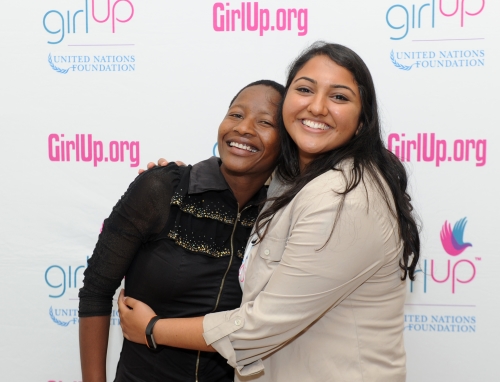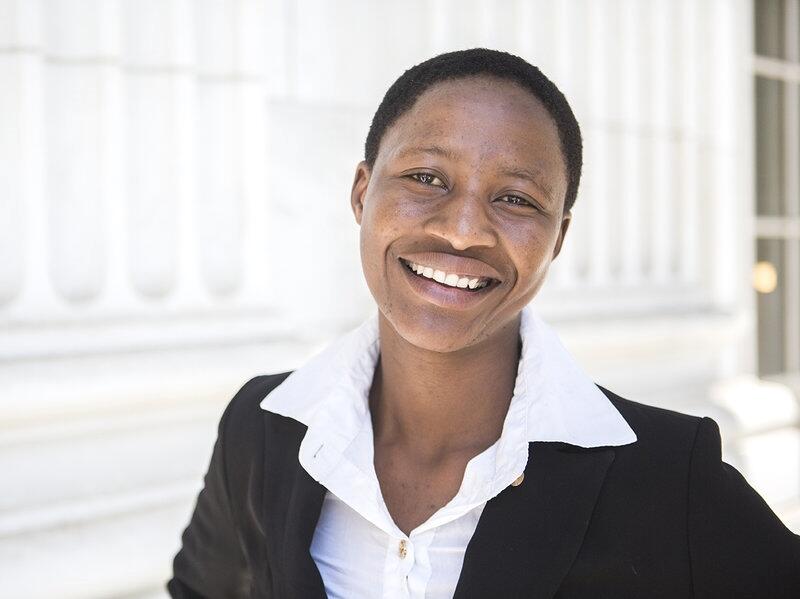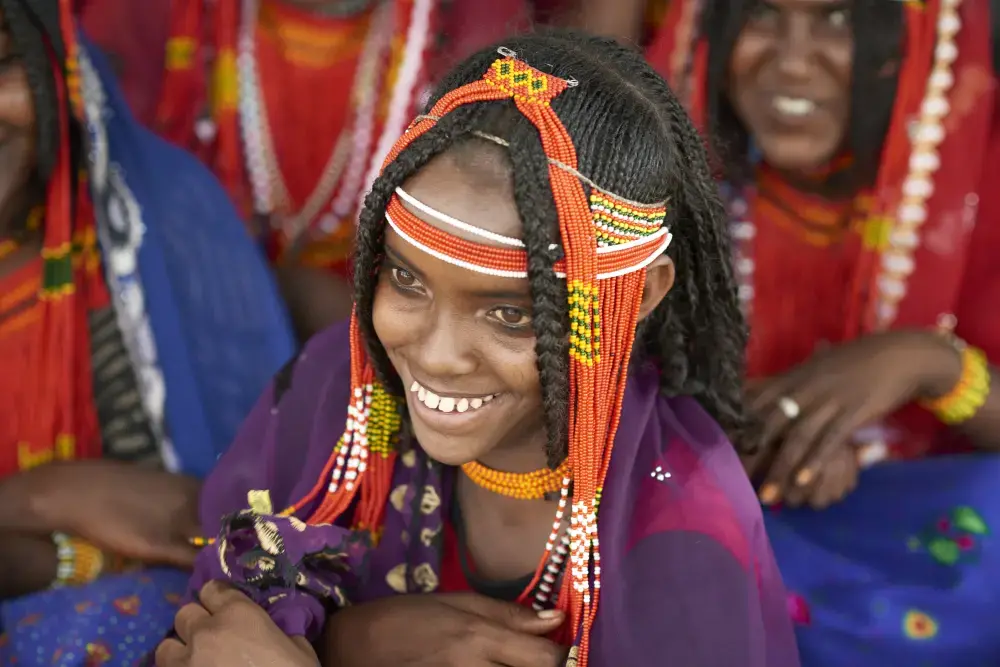MANGOCHI, Malawi — Like any other young woman, Jenipher Sanni dreams of making it big. But for a girl who survived a year-long abusive marriage at age 14 and with gritted determination to get an education, walked for four hours to school and back each day, her story is especially extraordinary.
Jenipher recently completed her O levels at secondary school. She managed this in part thanks to the provision of a bicycle, with UNFPA’s support, which cut down her journey time and improved her results.
This is the story that she shared at the 6th Annual Girl Up Leadership Summit in Washington DC, the United States, to a gathering of about 300 advocates for girls’ education.
A future ripped out from under her
In my community, getting married at this age is not strange. It is seen as normal.

In 2009, at the tender age of 14, Jenipher was married to a man who already had two children with his first wife.
“In my community, getting married at this age is not strange. It is seen as normal,” she said.
Yet, after dropping out of school to take up her wifely duties, she soon found herself in an abusive marriage – one that she endured for a year.
Her change in fortune was spearheaded by a community-based mothers’ group that came to her rescue in 2010, supported by local non-governmental organization Malawi Girl Guides (MAGGA) and with funding from UNFPA, the United Nations Population Fund.
With their help, Jenipher was removed from her marital home and put back in school, as one of the first beneficiaries of the UN Joint Programme on Adolescent Girls (UNJPAG) interventions in Mangochi.
UNJPAG mentorship programmes include menstruation management, girls’ participation in leadership skills building, prevention and management of gender-based violence, and sexual and reproductive health information for adolescent girls.
Long walk for an education
I talk with my fellow girls in my community on the effects of early marriage and the importance of staying in school.
But her return to school life was not easy – only one secondary day school, Mdinde, exists in Mangochi and it has no boarding facilities. This means she had to walk for more than two hours to get to school and at the end of each day, spend another two hours walking home.
The long journey affected her performance in class but amazingly, she was not discouraged from pursuing an education.
In 2015, the UN Foundation through UNFPA Malawi visited the school and provided bicycles to support girls’ mobility. Jenipher was one of the girls who benefited from the donation. She was thrilled: her two-hour journey was reduced to a 30-minute cycle – and her performance at school improved.
Jenipher launches 1000 bicycle campaign in the US
At the 6th Annual Girl Up Leadership Summit, organized by the UN Foundation, Jenipher was given the opportunity to launch a campaign to buy 1000 bicycles for schoolgirls in rural Malawi.
Jenipher is an example of how our work as UNFPA has transformed lives of many girls in Malawi, without which they would not have a vision for their lives and their potential would be denied.

“My visit here is motivation (for) many girls back home. I also talk with my fellow girls in my community on the effects of early marriage and the importance of staying in school,” she said at the launch, which took place on the second day of the summit.
Dorothy Nyasulu, Assistant Representative of UNFPA Malawi, accompanied her during the mission. “Jenipher is an example of how our work as UNFPA has transformed lives of many girls in Malawi, without which they would not have a vision for their lives and their potential would be denied. She is now a mentor for her fellow girls from Mangochi.”
JPAG’s ongoing positive impact for girls in Malawi
UNJPAG was implemented in the districts of Chikhwawa and Mangochi in 2010 with initial funding from the UN Foundation and further support by the Royal Norwegian Embassy in Malawi. The programme ended in December 2015, but the investments made are still evident in Jenipher’s life, and that of other girls.
Despite laws against child marriage, which were enacted in Malawi in February 2017, the practice remains widespread, in part because of persistent poverty and gender inequality. Almost half of all girls are married before their 18th birthday, while only 8 per cent of men marry at that young age. About 12 per cent of girls, like Jenipher, are married before their 15th birthday (2010 DHS). While 96 per cent of girls are enrolled in primary school, only 33 per cent enrol in secondary school.
Girls pressed into child marriage often experience gender-based violence and become pregnant while still adolescents, increasing the risk of complications in pregnancy and childbirth.
With all these changes in my life, I am considered a role model in my community. I am motivated by that responsibility.
UNFPA Malawi, with support from various funding agencies, has implemented programmes aimed at ending child marriage and promoting girls’ education. The EU-funded Gender Equality and Women’s Empowerment Programme and the UN Joint Programme on Girls Education, funded by the Royal Norwegian Embassy, have seen many girls returning to school after being married at a young age. Additionally, these girls are linked with youth-friendly health centres to access sexual and reproductive health and reproductive rights information and services.
“With all these changes in my life, I am considered a role model in my community,” said Jenipher. “I am motivated by that responsibility – and I work hard every day – because I know that I stand as a role model and mentor to other girls, and I don’t want to disappoint them.”
– Leticia Nangwale with additional reporting by Henry Chimbali



